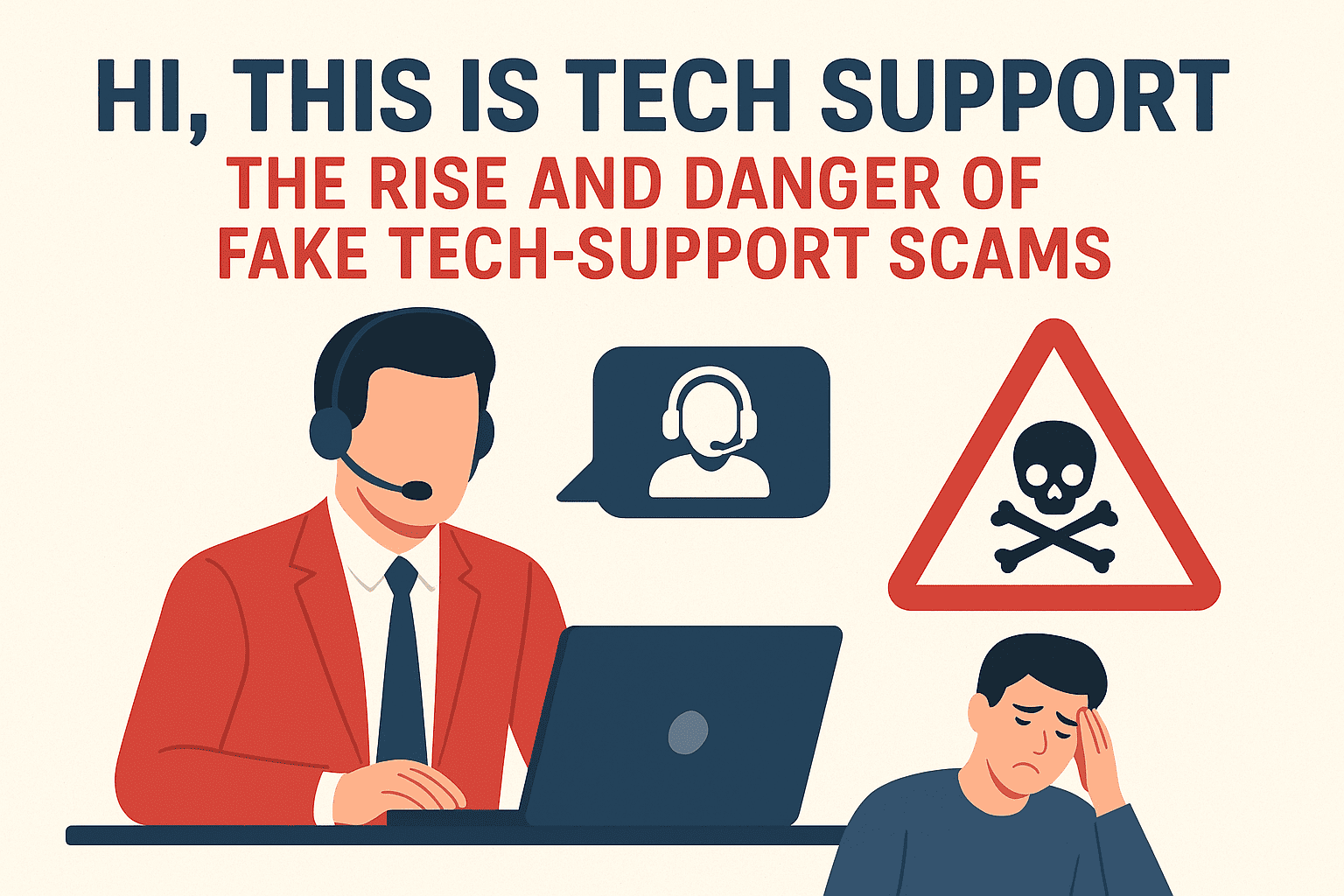
Reports of fake tech-support scams are sharply rising across the globe, targeting users of all ages and backgrounds with increasingly sophisticated methods. By posing as legitimate technical support personnel, scammers inflict financial losses, compromise personal data, and cause emotional distress. Here’s how these scams work, why they’re so dangerous, and expert advice on how you can stay safe.

Reports of fake tech-support scams are sharply rising across the globe, targeting users of all ages and backgrounds with increasingly sophisticated methods. By posing as legitimate technical support personnel, scammers inflict financial losses, compromise personal data, and cause emotional distress. Here’s how these scams work, why they’re so dangerous, and expert advice on how you can stay safe.

Reports of fake tech-support scams are sharply rising across the globe, targeting users of all ages and backgrounds with increasingly sophisticated methods. By posing as legitimate technical support personnel, scammers inflict financial losses, compromise personal data, and cause emotional distress. Here’s how these scams work, why they’re so dangerous, and expert advice on how you can stay safe.

Reports of fake tech-support scams are sharply rising across the globe, targeting users of all ages and backgrounds with increasingly sophisticated methods. By posing as legitimate technical support personnel, scammers inflict financial losses, compromise personal data, and cause emotional distress. Here’s how these scams work, why they’re so dangerous, and expert advice on how you can stay safe.

Reports of fake tech-support scams are sharply rising across the globe, targeting users of all ages and backgrounds with increasingly sophisticated methods. By posing as legitimate technical support personnel, scammers inflict financial losses, compromise personal data, and cause emotional distress. Here’s how these scams work, why they’re so dangerous, and expert advice on how you can stay safe.

Reports of fake tech-support scams are sharply rising across the globe, targeting users of all ages and backgrounds with increasingly sophisticated methods. By posing as legitimate technical support personnel, scammers inflict financial losses, compromise personal data, and cause emotional distress. Here’s how these scams work, why they’re so dangerous, and expert advice on how you can stay safe.

Reports of fake tech-support scams are sharply rising across the globe, targeting users of all ages and backgrounds with increasingly sophisticated methods. By posing as legitimate technical support personnel, scammers inflict financial losses, compromise personal data, and cause emotional distress. Here’s how these scams work, why they’re so dangerous, and expert advice on how you can stay safe.

Reports of fake tech-support scams are sharply rising across the globe, targeting users of all ages and backgrounds with increasingly sophisticated methods. By posing as legitimate technical support personnel, scammers inflict financial losses, compromise personal data, and cause emotional distress. Here’s how these scams work, why they’re so dangerous, and expert advice on how you can stay safe.
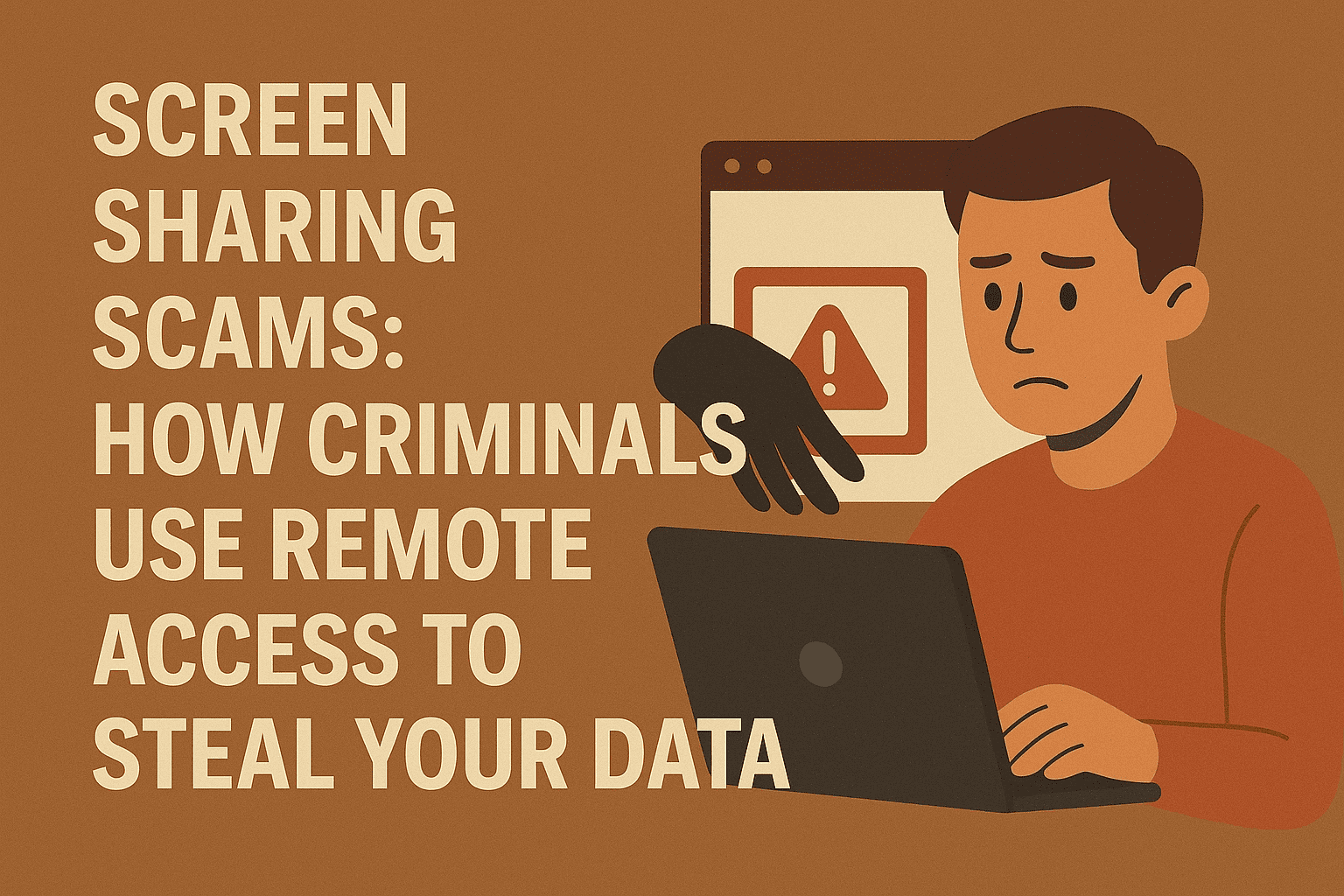
Screen sharing scams trick victims into giving scammers control or view of their devices, leading to identity theft and financial loss. Discover key warning signs and protection tips for 2025.

Screen sharing scams trick victims into giving scammers control or view of their devices, leading to identity theft and financial loss. Discover key warning signs and protection tips for 2025.

Screen sharing scams trick victims into giving scammers control or view of their devices, leading to identity theft and financial loss. Discover key warning signs and protection tips for 2025.

Screen sharing scams trick victims into giving scammers control or view of their devices, leading to identity theft and financial loss. Discover key warning signs and protection tips for 2025.
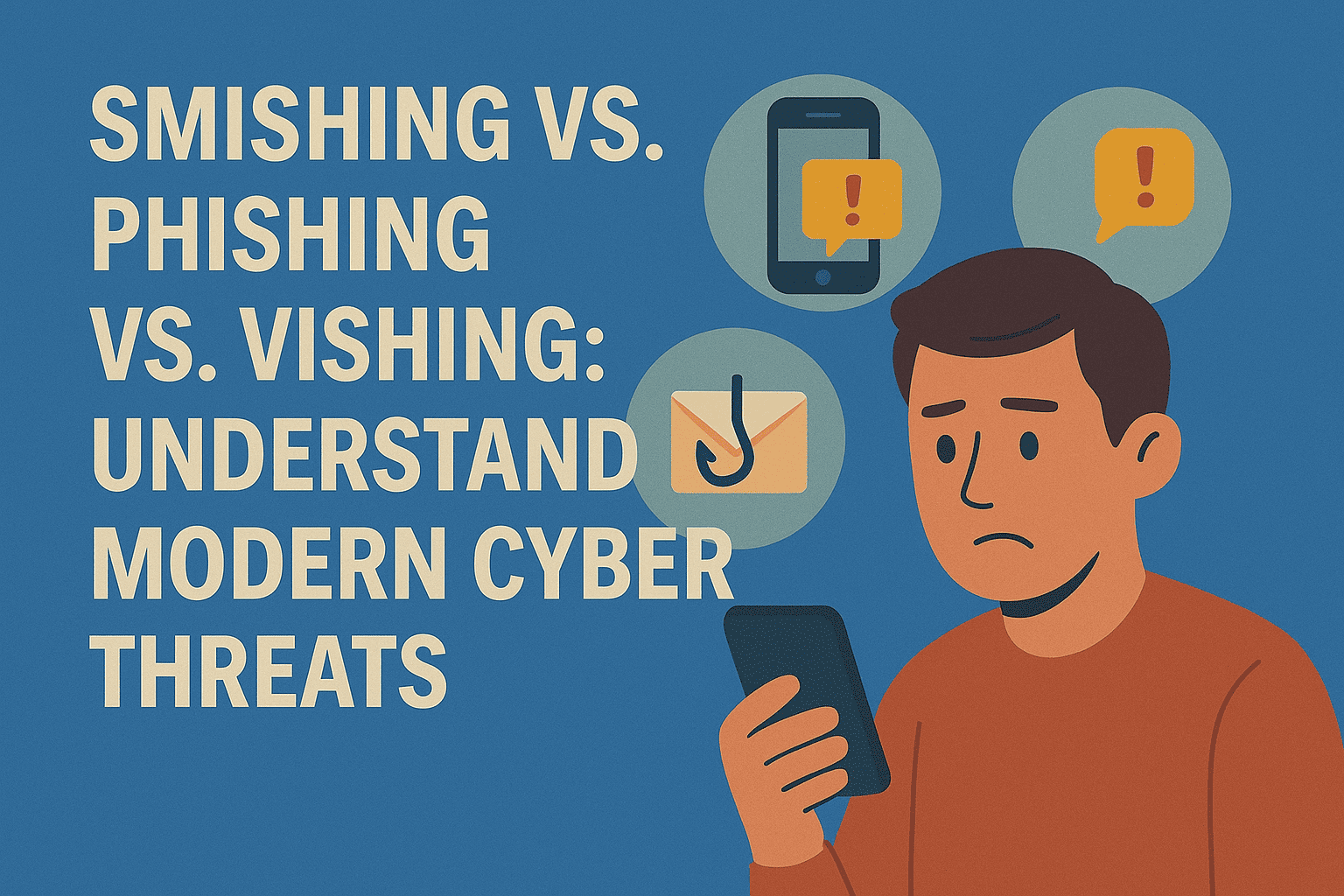
Phishing, smishing, and vishing are fast-rising cyber threats in 2025. Learn their key differences and get expert tips to protect your personal and financial data.

Screen sharing scams trick victims into giving scammers control or view of their devices, leading to identity theft and financial loss. Discover key warning signs and protection tips for 2025.

Screen sharing scams trick victims into giving scammers control or view of their devices, leading to identity theft and financial loss. Discover key warning signs and protection tips for 2025.

Screen sharing scams trick victims into giving scammers control or view of their devices, leading to identity theft and financial loss. Discover key warning signs and protection tips for 2025.

Screen sharing scams trick victims into giving scammers control or view of their devices, leading to identity theft and financial loss. Discover key warning signs and protection tips for 2025.

Phishing, smishing, and vishing are fast-rising cyber threats in 2025. Learn their key differences and get expert tips to protect your personal and financial data.

Phishing, smishing, and vishing are fast-rising cyber threats in 2025. Learn their key differences and get expert tips to protect your personal and financial data.

Phishing, smishing, and vishing are fast-rising cyber threats in 2025. Learn their key differences and get expert tips to protect your personal and financial data.

Phishing, smishing, and vishing are fast-rising cyber threats in 2025. Learn their key differences and get expert tips to protect your personal and financial data.

Phishing, smishing, and vishing are fast-rising cyber threats in 2025. Learn their key differences and get expert tips to protect your personal and financial data.

Phishing, smishing, and vishing are fast-rising cyber threats in 2025. Learn their key differences and get expert tips to protect your personal and financial data.

Screen sharing scams trick victims into giving scammers control or view of their devices, leading to identity theft and financial loss. Discover key warning signs and protection tips for 2025.
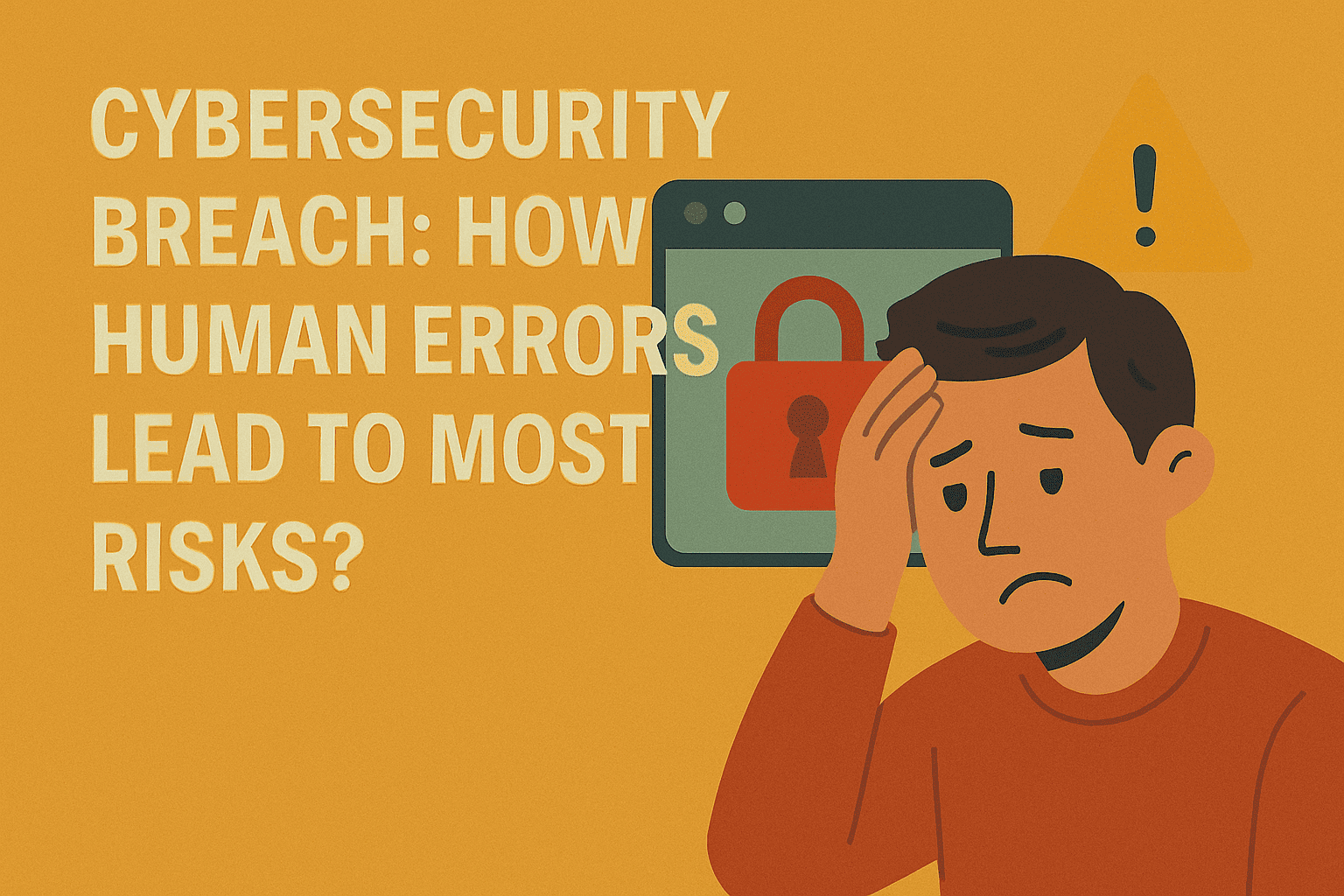
Human error is a leading cause of cybersecurity breaches — studies suggest it accounts for the vast majority of incidents. This article explains what a cybersecurity breach is, maps the spectrum of human errors that enable breaches (from phishing clicks to misconfigurations and insider threats), and provides practical prevention strategies: regular training, MFA, automation, strong password policies, patching, phishing simulations, and clear incident response procedures. By combining people-centered training with simpler processes and technology safeguards, organizations can significantly reduce the risk posed by human mistakes.

Human error is a leading cause of cybersecurity breaches — studies suggest it accounts for the vast majority of incidents. This article explains what a cybersecurity breach is, maps the spectrum of human errors that enable breaches (from phishing clicks to misconfigurations and insider threats), and provides practical prevention strategies: regular training, MFA, automation, strong password policies, patching, phishing simulations, and clear incident response procedures. By combining people-centered training with simpler processes and technology safeguards, organizations can significantly reduce the risk posed by human mistakes.
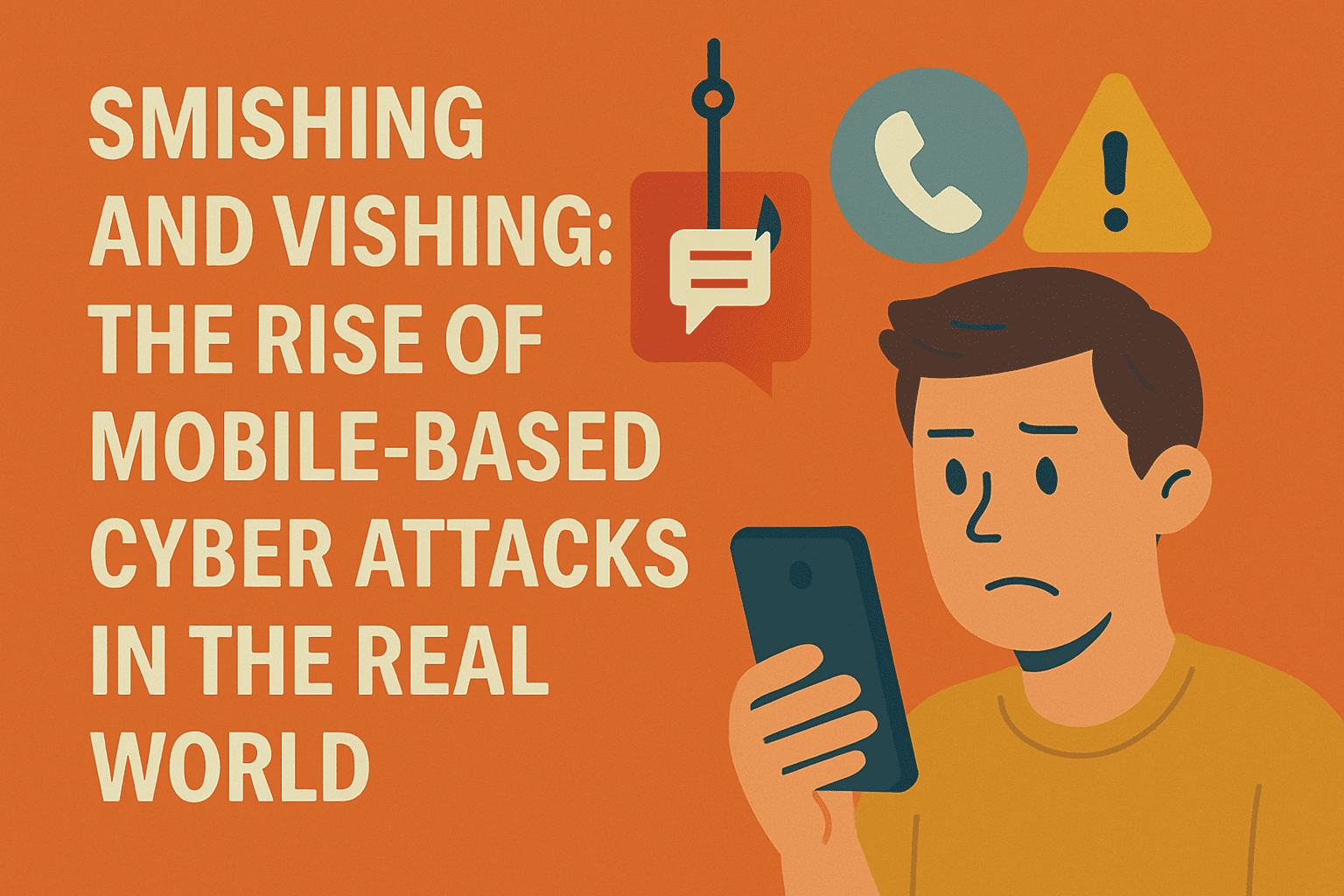
Smishing (SMS phishing) and vishing (voice phishing) are rapidly growing cyber threats targeting mobile users. This article explores how these scams work, real-life examples, and essential tips to protect yourself from such attacks.

Human error is a leading cause of cybersecurity breaches — studies suggest it accounts for the vast majority of incidents. This article explains what a cybersecurity breach is, maps the spectrum of human errors that enable breaches (from phishing clicks to misconfigurations and insider threats), and provides practical prevention strategies: regular training, MFA, automation, strong password policies, patching, phishing simulations, and clear incident response procedures. By combining people-centered training with simpler processes and technology safeguards, organizations can significantly reduce the risk posed by human mistakes.

Human error is a leading cause of cybersecurity breaches — studies suggest it accounts for the vast majority of incidents. This article explains what a cybersecurity breach is, maps the spectrum of human errors that enable breaches (from phishing clicks to misconfigurations and insider threats), and provides practical prevention strategies: regular training, MFA, automation, strong password policies, patching, phishing simulations, and clear incident response procedures. By combining people-centered training with simpler processes and technology safeguards, organizations can significantly reduce the risk posed by human mistakes.

Smishing (SMS phishing) and vishing (voice phishing) are rapidly growing cyber threats targeting mobile users. This article explores how these scams work, real-life examples, and essential tips to protect yourself from such attacks.

Smishing (SMS phishing) and vishing (voice phishing) are rapidly growing cyber threats targeting mobile users. This article explores how these scams work, real-life examples, and essential tips to protect yourself from such attacks.

Smishing (SMS phishing) and vishing (voice phishing) are rapidly growing cyber threats targeting mobile users. This article explores how these scams work, real-life examples, and essential tips to protect yourself from such attacks.

Smishing (SMS phishing) and vishing (voice phishing) are rapidly growing cyber threats targeting mobile users. This article explores how these scams work, real-life examples, and essential tips to protect yourself from such attacks.

Smishing (SMS phishing) and vishing (voice phishing) are rapidly growing cyber threats targeting mobile users. This article explores how these scams work, real-life examples, and essential tips to protect yourself from such attacks.
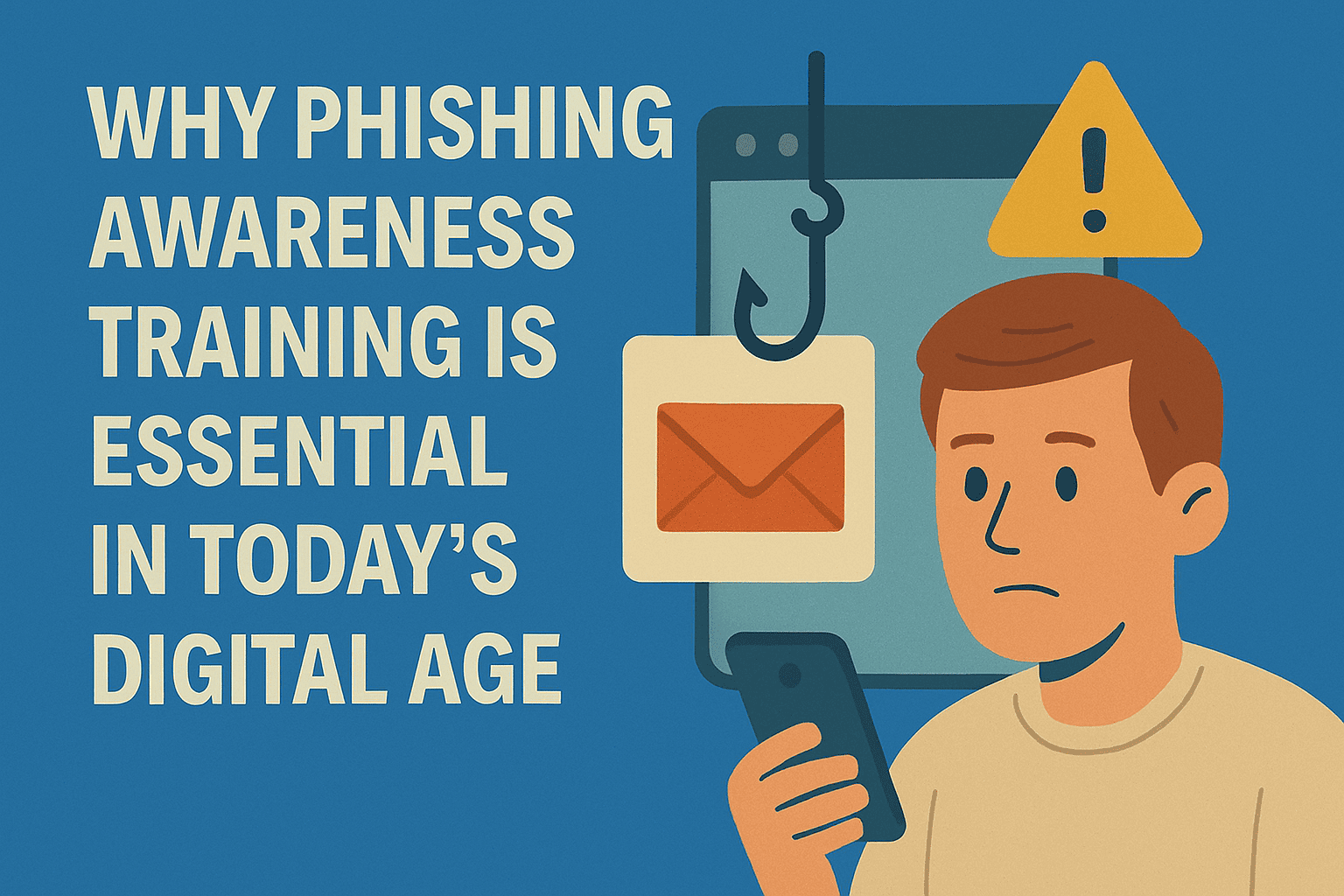
Phishing remains one of the most common and costly cyber threats, with billions of fraudulent emails sent daily and billions lost annually. Phishing awareness training empowers employees to identify, report, and prevent attacks—turning them into a strong first line of defense.

Phishing remains one of the most common and costly cyber threats, with billions of fraudulent emails sent daily and billions lost annually. Phishing awareness training empowers employees to identify, report, and prevent attacks—turning them into a strong first line of defense.

Phishing remains one of the most common and costly cyber threats, with billions of fraudulent emails sent daily and billions lost annually. Phishing awareness training empowers employees to identify, report, and prevent attacks—turning them into a strong first line of defense.

Phishing remains one of the most common and costly cyber threats, with billions of fraudulent emails sent daily and billions lost annually. Phishing awareness training empowers employees to identify, report, and prevent attacks—turning them into a strong first line of defense.

Phishing remains one of the most common and costly cyber threats, with billions of fraudulent emails sent daily and billions lost annually. Phishing awareness training empowers employees to identify, report, and prevent attacks—turning them into a strong first line of defense.

Phishing remains one of the most common and costly cyber threats, with billions of fraudulent emails sent daily and billions lost annually. Phishing awareness training empowers employees to identify, report, and prevent attacks—turning them into a strong first line of defense.

Phishing remains one of the most common and costly cyber threats, with billions of fraudulent emails sent daily and billions lost annually. Phishing awareness training empowers employees to identify, report, and prevent attacks—turning them into a strong first line of defense.

Cybercriminals are using deepfake videos and AI personas to create highly convincing scam content, tricking victims into installing malware or making fraudulent transactions. From fake influencers to cryptocurrency scams, these attacks are becoming more sophisticated and harder to detect.

Cybercriminals are using deepfake videos and AI personas to create highly convincing scam content, tricking victims into installing malware or making fraudulent transactions. From fake influencers to cryptocurrency scams, these attacks are becoming more sophisticated and harder to detect.

Cybercriminals are using deepfake videos and AI personas to create highly convincing scam content, tricking victims into installing malware or making fraudulent transactions. From fake influencers to cryptocurrency scams, these attacks are becoming more sophisticated and harder to detect.

Cybercriminals are using deepfake videos and AI personas to create highly convincing scam content, tricking victims into installing malware or making fraudulent transactions. From fake influencers to cryptocurrency scams, these attacks are becoming more sophisticated and harder to detect.

Cybercriminals are using deepfake videos and AI personas to create highly convincing scam content, tricking victims into installing malware or making fraudulent transactions. From fake influencers to cryptocurrency scams, these attacks are becoming more sophisticated and harder to detect.

Cybercriminals are using deepfake videos and AI personas to create highly convincing scam content, tricking victims into installing malware or making fraudulent transactions. From fake influencers to cryptocurrency scams, these attacks are becoming more sophisticated and harder to detect.

Cybercriminals are using deepfake videos and AI personas to create highly convincing scam content, tricking victims into installing malware or making fraudulent transactions. From fake influencers to cryptocurrency scams, these attacks are becoming more sophisticated and harder to detect.

Human error is a leading cause of cybersecurity breaches — studies suggest it accounts for the vast majority of incidents. This article explains what a cybersecurity breach is, maps the spectrum of human errors that enable breaches (from phishing clicks to misconfigurations and insider threats), and provides practical prevention strategies: regular training, MFA, automation, strong password policies, patching, phishing simulations, and clear incident response procedures. By combining people-centered training with simpler processes and technology safeguards, organizations can significantly reduce the risk posed by human mistakes.

Human error is a leading cause of cybersecurity breaches — studies suggest it accounts for the vast majority of incidents. This article explains what a cybersecurity breach is, maps the spectrum of human errors that enable breaches (from phishing clicks to misconfigurations and insider threats), and provides practical prevention strategies: regular training, MFA, automation, strong password policies, patching, phishing simulations, and clear incident response procedures. By combining people-centered training with simpler processes and technology safeguards, organizations can significantly reduce the risk posed by human mistakes.

Human error is a leading cause of cybersecurity breaches — studies suggest it accounts for the vast majority of incidents. This article explains what a cybersecurity breach is, maps the spectrum of human errors that enable breaches (from phishing clicks to misconfigurations and insider threats), and provides practical prevention strategies: regular training, MFA, automation, strong password policies, patching, phishing simulations, and clear incident response procedures. By combining people-centered training with simpler processes and technology safeguards, organizations can significantly reduce the risk posed by human mistakes.

Human error is a leading cause of cybersecurity breaches — studies suggest it accounts for the vast majority of incidents. This article explains what a cybersecurity breach is, maps the spectrum of human errors that enable breaches (from phishing clicks to misconfigurations and insider threats), and provides practical prevention strategies: regular training, MFA, automation, strong password policies, patching, phishing simulations, and clear incident response procedures. By combining people-centered training with simpler processes and technology safeguards, organizations can significantly reduce the risk posed by human mistakes.